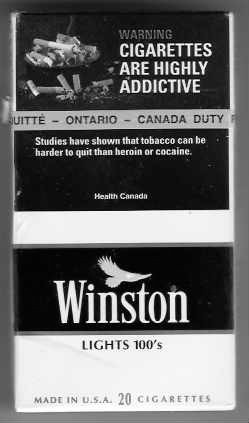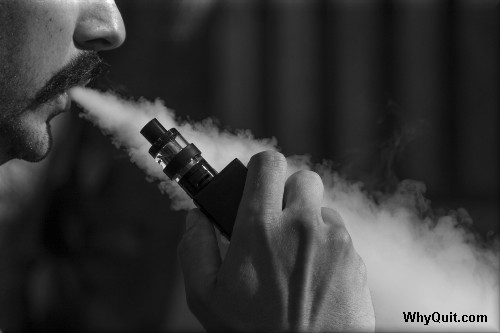 "Nasty little habit?" We are true drug addicts in every sense. That's right, look in the mirror and you'll see an honest to goodness drug addict looking back.
"Nasty little habit?" We are true drug addicts in every sense. That's right, look in the mirror and you'll see an honest to goodness drug addict looking back.
One of the most harmful rationalizations of all is pretending that all we have is a nasty "habit." It confuses children and encourages experimentation.
Children and teens believe that it takes time and repetition to develop a habit. But research shows that "experimenting" with smoking nicotine just once may be sufficient to begin fostering the loss of autonomy to stop using. [1]
Adoption of the "habit" rationalization is also disabling to those already enslaved. Imagine pretending that someday we'll awaken and at last discover how to mold, modify, manipulate and control our nicotine use, so as to allow us to use, or not use, as often as we please.
Imagine pretending that someday, we'll discover how to "have our cake and eat it too."
The phrase "nasty little habit" is simply more junkie thinking. Such soft fuzzy words minimize the hard cold reality of being chemically married to and dependent upon nicotine.
It's easier to tell ourselves that all we have is some "nasty little habit." The warmth of the phrase is akin to the cute and cuddly word "slip," the addict's tool for sugar coating relapse.
Failing to use turn signals while driving is a "habit" and so is using too many cuss words, cracking our knuckles, or losing our temper too often. But we will not experience physical withdrawal if we start using turn signals, stop cussing or cracking our knuckles, or learn to keep our temper in check.
Chemical dependence does foster habits. It does so by forcing us to select patterns for the regular delivery of nicotine. Our dependency fathered our drug feeding habits, not the other way around. Calling chemical dependence a habit is like calling a young child a parent.
Yes, it was almost always nearing time for another fix. And yes, we developed habits, but not just for the sake of having habits. There were only two choices; use again or prepare for withdrawal.

I wish it were just a "nasty little habit," I truly do. There would be no need for this book and vastly fewer deaths.
Truth is, my name is John and I'm a recovered nicotine addict. Effortlessly and comfortably, I live just one puff away from three packs-a-day. If I want to stay free, and stay me, all I have to do is to ... never take another puff, vape, dip, or chew!
References:
All rights reserved
Published in the USA
